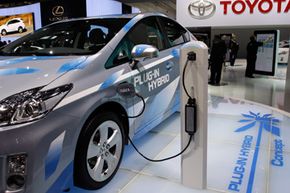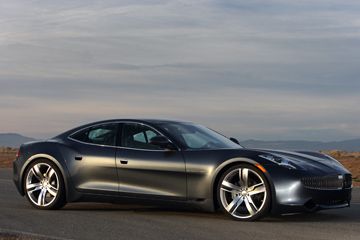Journalists have expended countless column inches over the years trying to answer the question, "Does it pay for a typical car buyer to purchase a hybrid gasoline-electric vehicle?" The answer has proven elusive, probably because it's nearly impossible to place a price tag on the psychological reward of driving a cleaner-running car.
As part of the American Recovery and Reinvestment Act of 2009 (commonly referred to as the Stimulus bill), Congress decided to make that calculus a little bit easier for consumers, by providing a tax break to people who buy certain electric-powered vehicles.
Advertisement
This "plug-in electric vehicle credit" seeks, like many tax incentives, to encourage certain public behavior. In this case, the credit is encouraging citizens to buy plug-in hybrids.
A few years ago, people typically didn't need to plug in hybrid vehicles. If the electric charge on, say, your Honda Insight or Toyota Prius ran low, the car's computer would simply request its on-board gasoline engine to replenish the charge. Now, however, with electric conversion kits and new hybrid vehicles intended to run primarily on electric motors, it's considered "normal" to plug in some hybrids at home for their nightly recharge.
Qualifying for a credit doesn't automatically mean you will get a check from the government. It simply means your tax bill will go down by the specific credit amount. If your tax bill is zero or if the government owes you money at tax time, then you will get a check with the amount of the credit figured in.
Keep reading to find out what plug-in hybrid owners must do to qualify for the plug-in electric vehicle tax credit.
Advertisement


